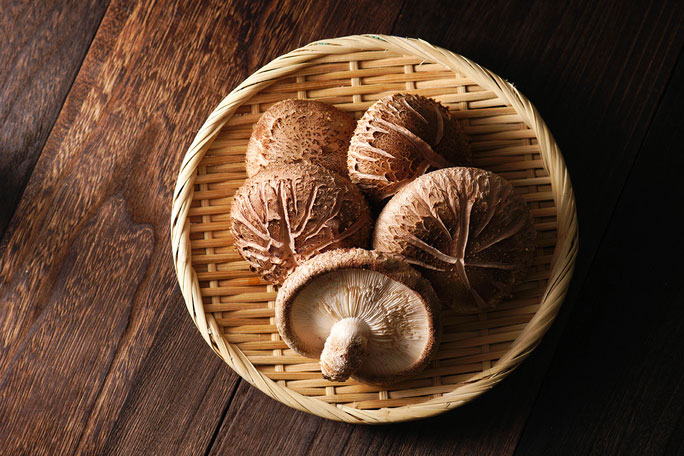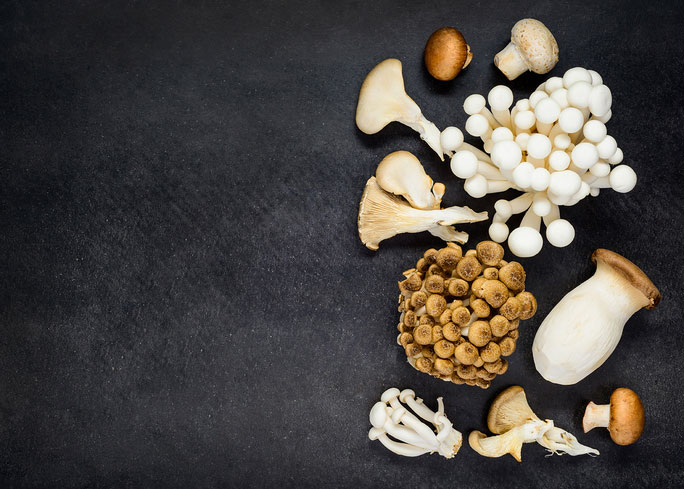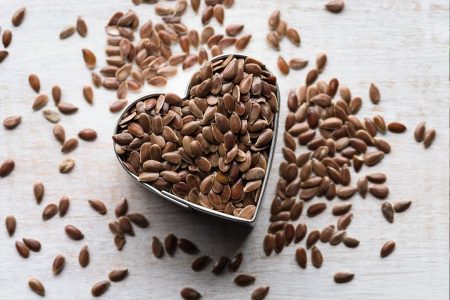Mushrooms are a great meat substitute, and new vegetarians will find them very useful as they learn to cook meatless meals. Mushrooms have exceptional flavor, and there are more than twenty savory varieties. The below article explores the different kinds of mushrooms, along with their enormous health benefits. Even the common button mushroom can inspire a fungi revolution!

Mushrooms
For centuries, mushrooms have played a key role in the therapeutic practices of traditional Eastern healers. Still, until fairly recent times, the Western world appeared to be unaware of the medicinal powers of mushrooms.
Although they’re often thought to be vegetables, mushrooms are actually fungi. Rich in nutrients, such as proteins, vitamins, and minerals, mushrooms have the ability to heal and repair cells. In addition, they’re very low in calories and carbohydrates, high in fiber and B vitamins, and abundant in niacin, riboflavin, and selenium.
People at risk for cardiovascular problems are encouraged to eat foods that are rich in potassium, a mineral that lowers blood pressure and reduces the risk of stroke. Daily consumption of mushrooms, which are an outstanding source of potassium, can prevent a shortage of this important mineral. Though it may be hard to believe, just one portobello mushroom, which can be used as a meat substitute, has more potassium than a glass of orange juice or a banana, both of which are touted as being high in potassium.
Mushrooms are wonderfully varied and provide a range of health benefits. Even the most common mushroom sold in the world, the everyday button mushroom, makes an uncommon contribution to human health: button mushrooms are known to kill cancer cells. Fresh or canned button mushrooms are readily available in supermarkets nationwide, and they boast very high levels of B vitamins along with potassium.

Shiitake mushrooms, which are gaining in popularity, have brown, slightly convex caps and a rich, smoky flavor. They’re noted for supporting cardiovascular health and immune function and for destroying cancer cells. Exceedingly rich in iron, shiitake mushrooms are also a good source of the minerals copper, manganese, phosphorus, potassium, selenium, and zinc. In addition, shiitake mushrooms are an excellent source of vitamins B2, B5, and B6.
Other common mushrooms include brown, or cremini, mushrooms, which are meaty and earthy, and portobello mushrooms, which are simply fully grown brown mushrooms. Another variety that can sometimes be found in supermarkets, oyster mushrooms have a mild, delicate flavor.
Reprinted from Superfoods: Nature’s Top Ten by Myrna Chandler Goldstein, MA and Mark Allan Goldstein, MD (Summertown, Tennessee: Books Alive, 2014): pp 26-27. www.bookpubco.com







